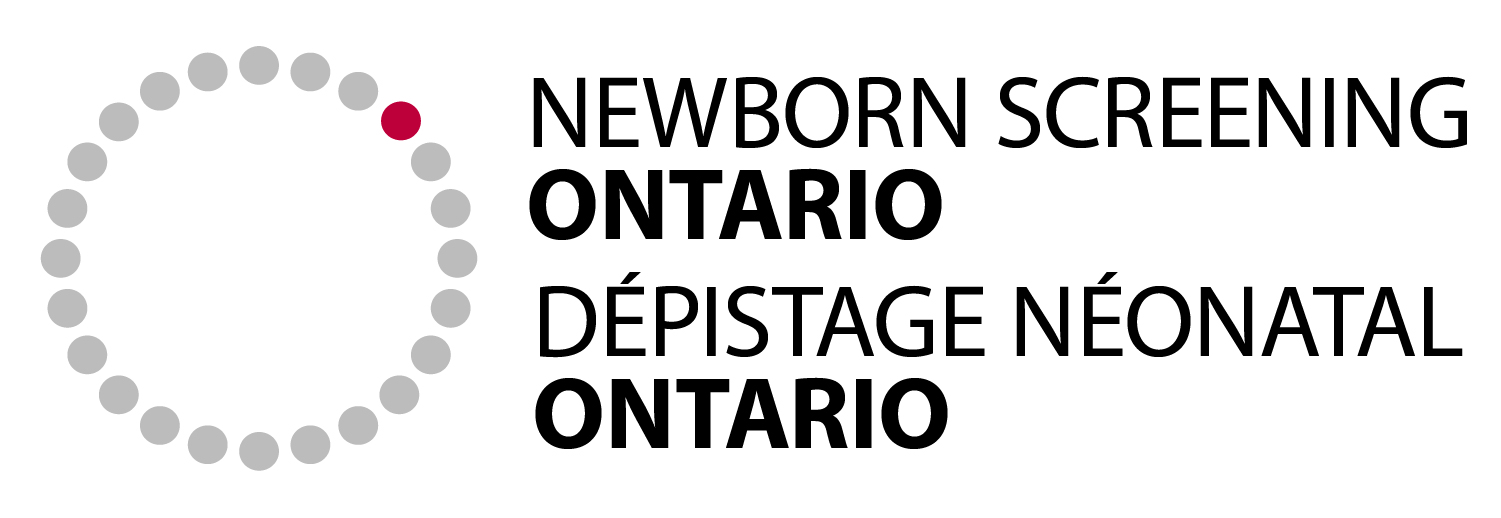- In Ontario, a heel prick is used to take a few drops of blood from each baby shortly after birth. The blood is tested for more than 25 treatable diseases, including carnitine uptake defect (CUD).
- A screen positive result means that more tests are needed to know whether or not a baby has CUD. It does not mean that a baby has CUD. Babies identified at a young age through screening can be treated early to help prevent health problems.
Carnitine Uptake Defect (CUD)
At a glance
| Approximate incidence in Ontario: | Marker measured: | Screening can prevent: | Treatment: |
| Unknown so rare | C0 | Cardiomyopathy, hypotonia, hepatomegaly, encephalopathy, coma, death | Carnitine supplementation, avoid fasting |
-
CUD is a rare, inherited (genetic) disease.
- Babies with CUD have trouble absorbing a protein called carnitine into their cells.
- The cells need carnitine to make certain types of fat into energy.
- Fats are an important source of energy for the muscles, brain, and heart, especially between meals.
- It is normal for parents and guardians to feel worried when their baby has a screen positive result. A ‘screen positive’ result does not mean that a baby has CUD. It means that there is a chance that the baby may have CUD.
- Follow-up testing is important to find out whether the baby truly has CUD.
- The baby’s health care provider or a health care provider at a newborn screening regional treatment centre will discuss the results with the baby’s family.
- Follow-up blood and urine tests will be arranged as soon as possible. Testing may also be done for the baby’s mother.
- It can take a few days to weeks to find out if a baby truly has CUD or not. This waiting period can be hard for families.
Possible follow-up test results
- Normal – the baby does not have CUD.
- Abnormal – the baby does have CUD and will need treatment. The family will be supported by a team of caring specialists.
- Inconclusive – more testing is required. The baby will be followed closely by a specialist to ensure that he/she receives optimal care.
Without treatment, symptoms can range from absent to severe.
While most babies with CUD are normal at birth, early signs of the disease can include:
- Poor growth
- Excessive tiredness
- Failure to feed properly
- Sweating while feeding (due to heart failure)
- Muscle weakness (may not happen in the newborn and early period)
- Large liver
Early treatment helps to prevent serious and life-threatening health problems such as:
- Heart failure
- Metabolic crisis - a serious health condition caused by low blood sugar and/or the build-up of harmful substances in the blood. If a metabolic crisis is not treated, breathing problems, seizures, coma, brain damage and sometimes death can occur.
Symptoms of a metabolic crisis are:
- Poor feeding
- Vomiting
- Lethargy
- Excessive sleepiness
- Irritability
Screening and treatment aim to prevent metabolic crises and help children with CUD lead healthy lives.
-
CUD is easily treated. Treatment involves:
- Medication (large doses of carnitine)
- Babies with CUD should not go for long periods of time without eating.
- A diet low in certain fats is sometimes recommended.
- Treatment begins as early as possible and is life long.
- A team, including a metabolic doctor and a dietitian, cares for babies with CUD.
- Babies with CUD have their health and development checked regularly.
- Regular follow-up tests are used to monitor and adjust treatments.
- With early detection and careful treatment, children with CUD are usually as healthy and intelligent as other children their age.
If your baby has screened positive for CUD, click here for more information.
Contact Us
Children’s Hospital of Eastern Ontario
415 Smyth Road
Ottawa, Ontario K1H 8M8
Toll-Free: 1-877-627-8330
Local: (613) 738-3222
Fax: (613) 738-0853
